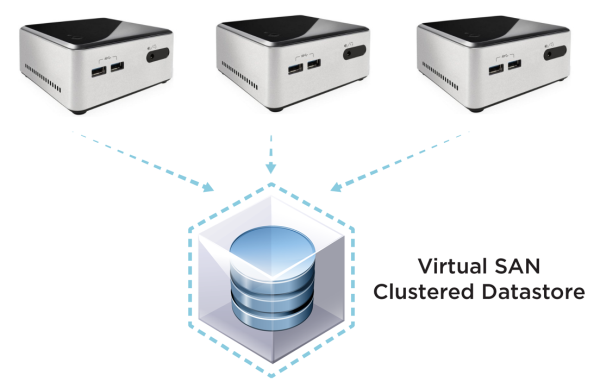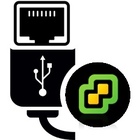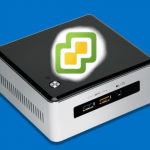ESXi on 11th Gen Intel NUC Pro (Tiger Canyon)
Intel's Tiger Lake-based 11th Gen "Tiger Canyon" NUC Professional series has been launched in Q1 of 2021. In a previous article, I made a quick comparison of the upcoming 11th Gen series NUCs. This article takes a deeper look at their capabilities to run VMware ESXi. VMware does not officially support NUCs but they are ubiquitous in many home labs or test environments. They are small, silent, transportable, and have very low power consumption, making them a great server for your home lab. The Tiger Canyon is available with i3, i5, and i7 CPUs. The i5 and i7 versions are also available with vPro Support.
- NUC11TNKv7 / NUC11TNHv7 / NUC11TNHv70L (Intel Core i7-1185G7 vPro - 4 Core, up to 4.8 GHz)
- NUC11TNKv5 / NUC11TNHv5 / NUC11TNHv50L (Intel Core i5-1145G7 vPro - 4 Core, up to 4.4 GHz)
- NUC11TNKi7 / NUC11TNHi7 / NUC11TNHi70L (Intel Core i7-1165G7 - 4 Core, up to 4.7 GHz)
- NUC11TNKi5 / NUC11TNHi5 / NUC11TNHi50L (Intel Core i5-1135G7 - 4 Core, up to 4.2 GHz)
- NUC11TNKi3 / NUC11TNHi3 / NUC11TNHi30L (Intel Core i3-1115G4 - 2 Core, up to 4.1 GHz)

The Tiger Canyon is Intel's professional line in the 11th Generation. As we didn't have a vPro NUC in the 10th Generation and the 9th series was quite a different approach with a larger chassis, the Tiger Canyon is the actual successor to the 8th Gen Provo Canyon. This system is intended for professional use cases and has some great enhancements for your homelab running ESXi like the expansion bay which allows you to install a second network adapter.

 When you are running an ESXi based homelab, you might have considered using vSAN as the storage technology of choice. Hyperconverged storages are a growing alternative to SAN-based systems in virtual environments, so using them at home will help to improve your skillset with that technology.
When you are running an ESXi based homelab, you might have considered using vSAN as the storage technology of choice. Hyperconverged storages are a growing alternative to SAN-based systems in virtual environments, so using them at home will help to improve your skillset with that technology. The
The  VMware vSphere ESXi 7.0 Update 1 is here. If you have Intel NUCs in your homelab you should always be very careful when updating to new ESXi releases as there might be issues. Please always keep in mind that this is not an officially supported platform.
VMware vSphere ESXi 7.0 Update 1 is here. If you have Intel NUCs in your homelab you should always be very careful when updating to new ESXi releases as there might be issues. Please always keep in mind that this is not an officially supported platform.